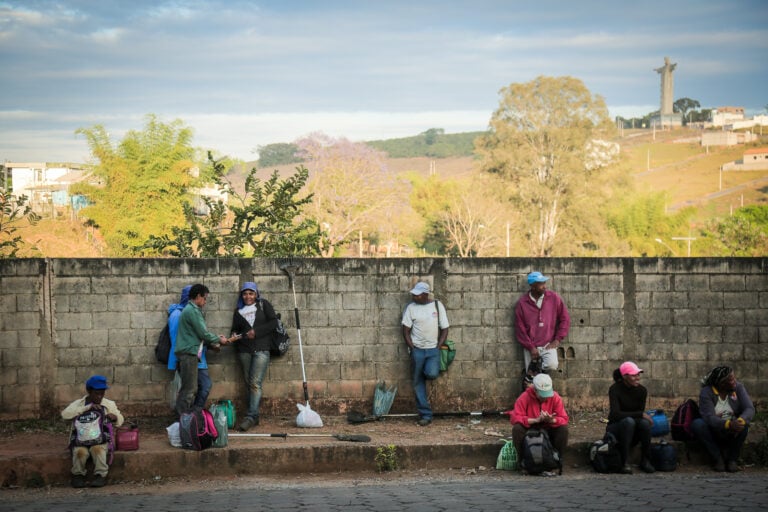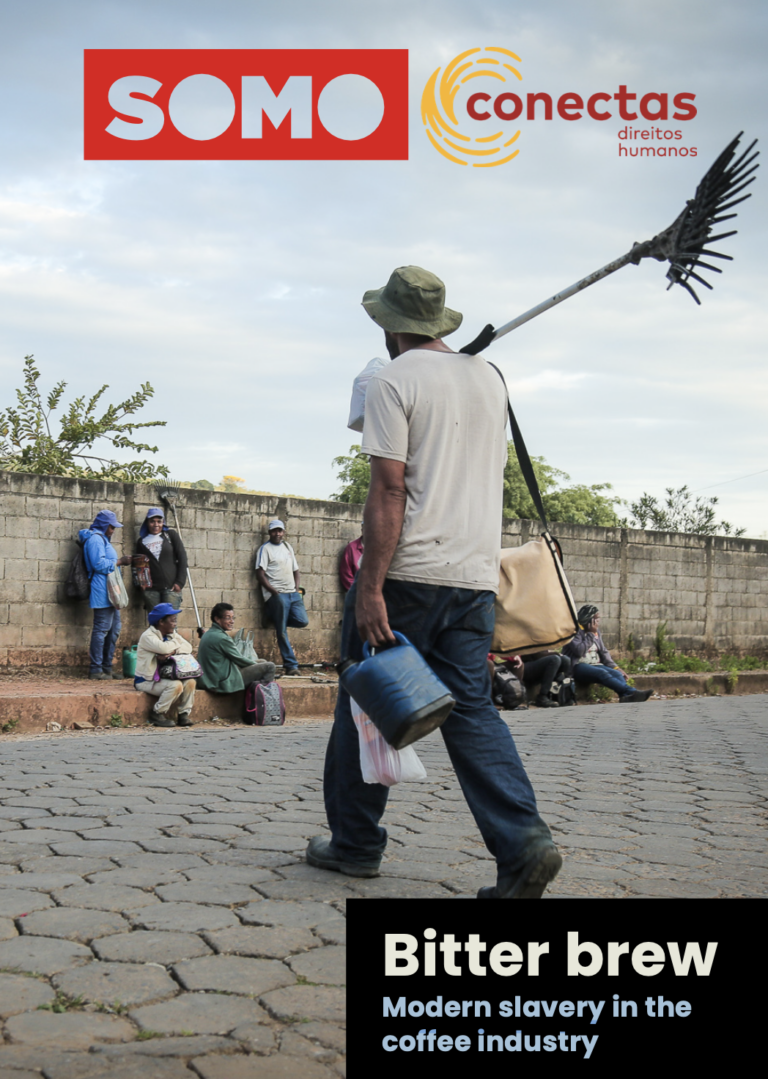
Victims of violence at Unilever tea plantation take complaint to the UN
A group of 218 current and former Kenyan tea workers have filed a formal complaint against Unilever today for its failure to respect international human rights standards following widespread violence at the multinational’s largest tea plantation.
The complaint is brought to the United Nations Working Group on Business and Human Rights and the UN Special Rapporteur on Extreme Poverty and Human Rights by SOMO, REDRESS(opens in new window) , Kituo Cha Sharia(opens in new window) , the CORE Coalition(opens in new window) , the African Coalition for Corporate Accountability (ACCA(opens in new window) ) and Leigh Day(opens in new window) , who represents the 218 victims and has filed the complaint on their behalf.
The victims were (and in some cases continue to be) employees and residents of Unilever’s vast Kericho tea plantation in Western Kenya, which houses over ten per cent of the multinational’s global workforce. In December 2007, during post-election turmoil, large groups of attackers invaded the Unilever plantation, assaulting hundreds of workers and their families solely based on their ethnicity. Seven people died in the attacks, many others were raped and seriously hurt. The survivors still suffer from physical and psychiatric injuries.
The complaint makes three allegations against Unilever:
- Unilever placed the victims in a position of significant risk of attack on their plantation and yet has refused to provide adequate redress or assistance to the victims. This was the most serious known case of human rights abuse suffered by the largest concentration of Unilever workers anywhere in the world and yet Unilever has failed to take adequate steps to address and remediate the impacts.
- After the violent events, Unilever failed to provide appropriate assistance to the victims and instead unilaterally stopped their wages for a six-month period, further exacerbating their situation.
- Facing a specific request for remedy from the 218 victims of ethnic violence in 2016 in the form of a civil claim for damages against Unilever in England, the company refused any remediation and sought to block any prospect of access to remedy by hiding behind its corporate structure. In order to prevent the claims from proceeding in England, Unilever insisted that it could not be held legally responsible for any failings of their Kenyan subsidiary, while knowing that these claims could not be brought in Kenya.
The complaint submits that each allegation constitutes a serious breach of the United Nations Guiding Principles on Business and Human Rights, which Unilever enthusiastically endorses and claims to adhere to.
Lydia de Leeuw (SOMO): “It is striking to see that a company like Unilever, which prides itself for being a responsible and sustainable company, has used its corporate structure to shield the parent company from liability in the civil claim brought by the victims in this case. This strategy starkly contrasts with its public commitment to the UN Guiding Principles on Business and Human Rights, which include the responsibility to prevent human rights risks and address human rights impacts at subsidiaries.”
The victims invite the United Nations Special Procedures to call on Unilever to provide them with an effective remedy and to issue a declaration that Unilever has failed to comply with the Guiding Principles. Besides finally having the needs of the victims addressed, the complainants hope that the UN Special Procedures will also provide clarity as to the application of the UN Guiding Principles to the litigation strategies used by parent companies to distance themselves from subsidiaries and shield themselves from liability for human rights abuses occurring in their corporate group, thereby effectively blocking victims’ access to remedy.
Background
In 2015, Leigh Day filed a legal case on behalf of the victims in the London High Court, alleging that Unilever failed to take adequate measure to protect them from the risk of harm which it had placed them in, although significant steps were taken to protect managers and expatriates.
Unilever vigorously fought the case to persuade the English Courts to decline jurisdiction in favour of the Kenyan Courts. However, the claimants are clear that there is no prospect that the case can proceed in Kenya without placing them at significant risk of further violence or intimidation. The High Court agreed with that assessment.
The victims argued that their claims necessarily concerned Unilever Plc in London because it was responsible for ensuring that its Kenyan subsidiary had adequate crisis management systems were in place.
In response, Unilever sought to hide behind its corporate structure to block the claims from proceeding. The Court of Appeal ultimately declined jurisdiction in England on the basis of Unilever’s corporate structure and that there was insufficient evidence that Unilever Plc was responsible for the alleged failings of its Kenyan subsidiary.
In 2019, the Supreme Court refused leave to appeal on the grounds that the case did not raise a point of law of general public importance because the relevant principles had recently been clarified in Lungowe v Vedanta Resources plc [2019] UKSC 20.
Unilever has therefore succeeded so far in blocking any prospect of justice for their Kenyan workers, in the knowledge that the case cannot proceed in the Kenya, in breach of international human rights standards.
Do you need more information?
-

Lydia de Leeuw
Researcher
Partners
-
Leigh Day
-
REDRESS
-
African Coalition for Corporate Accountability (ACCA)
-
Kituo Cha Sharia
-
Corporate Responsibility Coalition (CORE)
Related content
-
Unilever was negligent in protecting its own employees in KenyaPosted in category:Published on:Statement
-
 Modern slavery is still lurking in your coffee cupPosted in category:News
Modern slavery is still lurking in your coffee cupPosted in category:News Joseph Wilde-RamsingPublished on:
Joseph Wilde-RamsingPublished on: -
Bitter brew Published on:Posted in category:Publication



